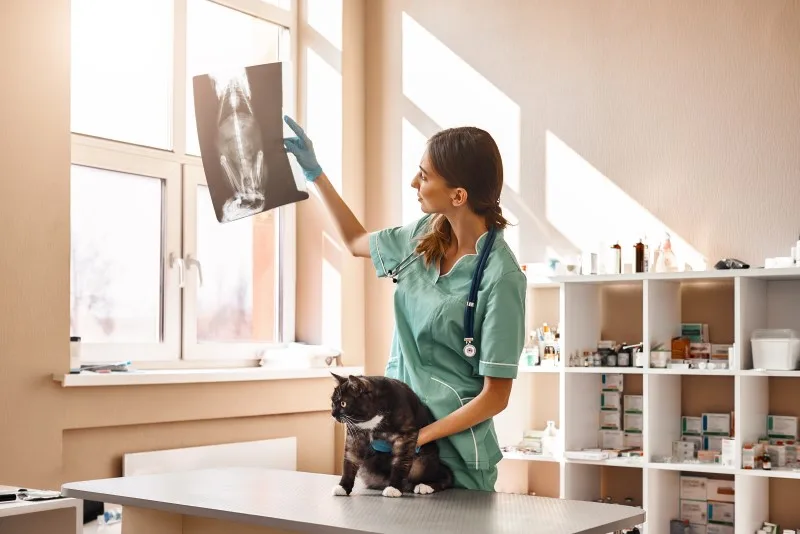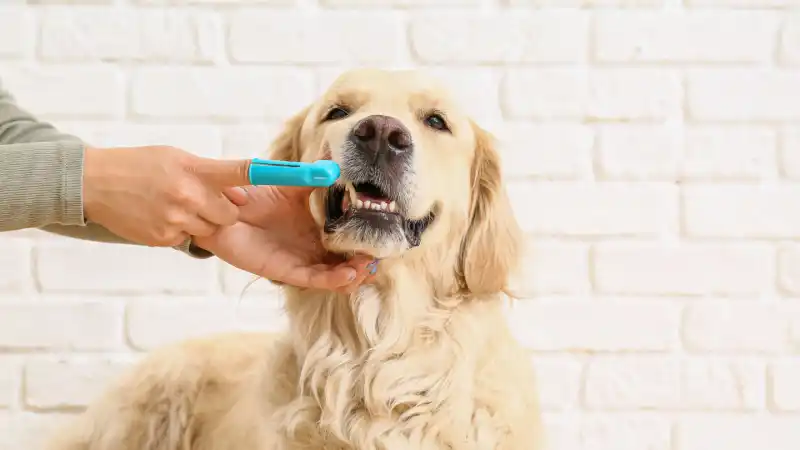Women in Veterinary History
March is Women's History Month. Let's celebrate the significant contributions to the veterinary profession made by women by profiling 5 veterinary pioneers.

March isWomen's History Month. Since 1981, this month has been dedicated to recognizing the contributions and achievements of women in all areas and professions. In this article, we'll look at some of the most influential women in veterinary history. These amazing women have made significant contributions to the veterinary profession and have helped to shape the field as we know it today.
Early Pioneers
Since the early 1900s, women have been making their mark in the veterinary profession. The earliest known female veterinarian in the United States was Mignon Nicholson. She graduated from McKillip Veterinary College in Chicago, Illinois in 1903. Later, in 1949, Alfreda Johnson Webb and Jane Hinton were the first two African-American women to receive degrees in veterinary medicine.
Equine veterinarians are those that specialize in the treatment and care of horses. Phyllis Lose was the first female to graduate with this specialty in 1957. Following this, Dr. Ethel Connelly was the first Native American woman to graduate with a degree in Veterinary Medicine in 1989.
Thankfully, being underrepresented didn't deter women from pursuing veterinary studies and employment. And in 2009, the AVMA reported for the first time that the number of female veterinarians outnumbered male veterinarians in the United States.
Contributions and Achievements
Throughout the years, women in veterinary medicine have made groundbreaking contributions and achieved notable successes. Let's take a look at some of the inspiring women who've made a lasting impact on the profession.
Dr. Elinor McGrath
Dr. Elinor McGrath was the first female admitted to the Chicago Veterinary College in 1907. In a time when veterinary aid focused mainly on the farming economy, McGrath pushed the limits by providing and popularizing the care of smaller domestic animals. It was through her passionate understanding of the bond between people and their pets that she also developed the city's first pet cemetery.
Dr. Mary Knight Dunlap
Graduating in a time (1933) when female veterinarians were still few and far between, Mary Knight Dunlap was inspired to create a space for women in the field to find support and share experiences.
Dunlap blazed forward to make her dreams a reality and founded the Women's Veterinary Association in August 1947. She wrote to all 37 female members of the AVMA and encouraged them to get involved in this new association. Over the years, the association thrived as an opportunity for support, mentorship, networking, advocacy, and education for all women within the profession.
Dr. Jane Hinton
Jane Hinton's everlasting impression on the medical world began even before the completion of her veterinary doctorate. Before taking up veterinary medicine, Jane co-developed the Mueller-Hinton agar, a culture medium that's used to determine antibiotic resistance among bacteria.
Jane went on to become one of the first two black women to graduate with a degree in Veterinary Medicine in 1948. As an African American woman, Dr. Hinton broke down barriers to ensure diversity and minority representation in the veterinary field.
Dr. Lila Miller
Dr. Lila Miller dedicated her career to the bettering of care and medical practices for shelter animals, earning her the title of "Mother of Shelter Medicine." As a veterinarian, Miller was compelled to improve conditions and practices within animal shelters. This empowered her to achieve the role of Vice President of Shelter Medicine for the American Society for the Prevention of Cruelty to Animals (ASPCA).
In this role, Miller planted seeds and grew the understanding throughout the profession that an animal's value is not rooted in its ownership status. This new outlook supported her in developing the first vet-written guidelines for proper care of shelter animals.
Dr. Miller's guidelines are now used nationwide to ensure the health and happiness of shelter animals and ensure access to mandated vaccines, treatment for illness, and more. Driven by the belief that veterinarians should be life-long learners, she established many continuing education courses that focus on shelter medicine and care.
Dr. Shirley D. Johnston
In 1998, Dr. Shirley D. Johnston became the first woman to be appointed to the position of dean at the Western University of Health Sciences College of Veterinary Medicine. This was significant, as she was not only the first female dean of this particular school, but for all veterinary institutions across the United States.
Dr. Johnston used this leadership role to advocate against gender issues within the profession. She demanded gender equality in admission practices, graduation processes, salaries, and representation in roles of authority and leadership from veterinary universities, colleges, and the practice in general.
In addition, Johnston has been a vocal supporter of people of color and their representation in the veterinary field. She is also committed to holding professionals accountable as animal advocates, public health resources, and lifelong learners.
The Legacy of Women in Veterinary History
The women featured here are only a few of the many influential women who have shaped veterinary history. Their accomplishments have helped to close the gender gap, increase diversity, and expand opportunities for all within the profession. As we celebrate Women's History Month, let us remember their contributions and honor the progress they've made in advancing the veterinary profession.
Take some of the stress out of pet ownership with Accident & Illness Coverage from AKC Pet Insurance (underwritten by Independence American Insurance Company). Our pet insurance plans are designed to be there when you need them, allowing you to focus more on the health of your pet and less on costly veterinary bills. Click here for a quote today!

Richard has shared his life with pets since childhood, and currently has a rescue cat and dog. He works with veterinarians and pet businesses to improve their content. To find out more, please visit his [website](https://richardrowlands.com/).
READ MORE ARTICLES

